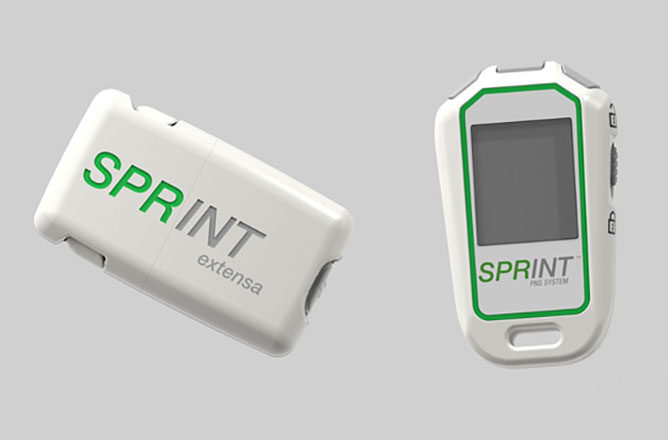SPR Therapeutics Awarded $10M From U.S. Department Of Defense

SPR Therapeutics, Inc., a leader in neurostimulation technology for pain management, has been awarded two new grants and one new contract from the U.S. Department of Defense totaling $10M to further develop its percutaneous Peripheral Nerve Stimulation (PNS) therapy, the company announced today. The SPRINT® PNS System offers a non-opioid pain relief therapy that is FDA-cleared for the treatment of acute and chronic pain.
In addition to a previous contract and grants from the National Institutes of Health and Department of Defense, these latest awards from the Defense Department bring the total amount of grants and contracts to $30M to support the advancement of SPR’s neurostimulation technology for pain.
“We are honored to receive this additional Department of Defense funding to advance research in support of broader use of our SPRINT percutaneous Peripheral Nerve Stimulation therapy for pain,” said Maria Bennett, Founder, President and CEO of SPR Therapeutics. “The management of chronic and post-operative pain continues to be a challenge among U.S. Military, Veterans and the general public. In the midst of the opioid crisis and the need for non-opioid pain treatment options, product refinements and data from additional studies of percutaneous PNS will support the independent, appropriate and effective use of our SPRINT PNS System for pain management.”
The largest of the awards, a grant totaling $6M, will support a randomized controlled trial (RCT) comparing the SPRINT PNS System to conventional medical management, to reduce pain and opioid use while enabling improvements in function among Service members, Veterans and civilians with chronic back pain. Chronic back pain interferes with function and daily activities (such as walking, work and personal care), and decreases quality of life. As the leading cause of morbidity in the U.S. military, back pain is the most commonly diagnosed injury or reason for seeking medical care and has the highest 5-year risk of permanent disability.
Read the full story at Global Newswire.